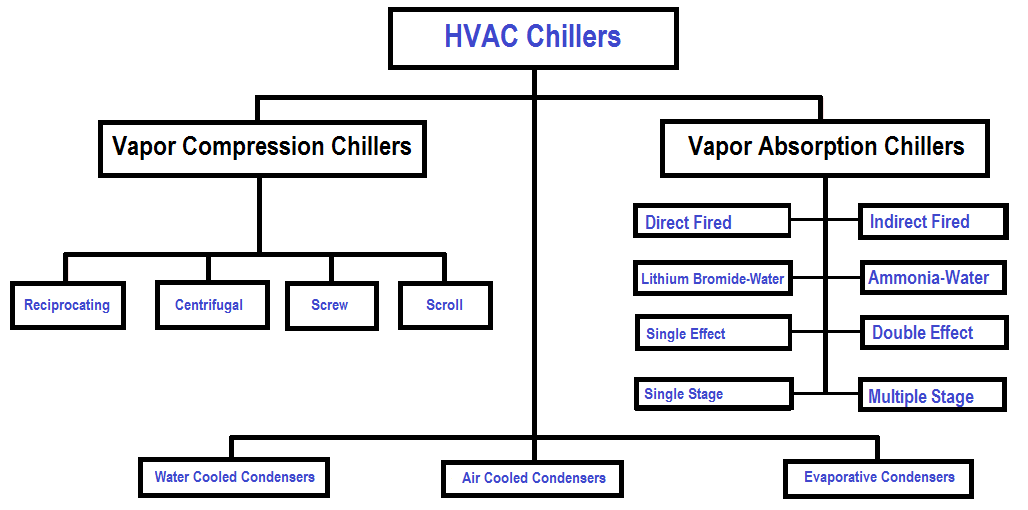Hvac Classification
Do you know the importance of HVAC classification? The heating, ventilation, and air conditioning (HVAC) system plays a crucial role in ensuring a comfortable and healthy indoor environment. However, choosing the right HVAC system is a daunting task, considering the different classification schemes available. In this article, we will guide you through the classification of HVAC systems and help you make an informed decision.
The HVAC system is critical in providing thermal comfort and indoor air quality. However, there are different types and classifications available, creating confusion among homeowners and facility managers. Issues of compatibility, price, and energy consumption further complicate the selection process.
The target of HVAC classification is to provide a structured and standardized system that helps users understand the capabilities, features, and limitations of each type. With proper classification, users can select an HVAC system that meets their specific requirements.
This article aims to summarize the essential points about HVAC classification and related keywords, including HVAC systems, HVAC Chillers, and HVAC filters. HVAC systems fall under several categories, including Packaged HVAC systems, Split HVAC systems, and Hybrid HVAC systems. HVAC Chillers can be classified based on their type, use, and mechanism of work. Under HVAC filters, there are several types, including HEPA filters, activated carbon filters, and fiberglass filters.
HVAC Classification and Its Target
Choosing an HVAC system can be overwhelming, but proper classification can help simplify the decision-making process. HVAC classification typically targets HVAC system users, including homeowners, facility managers, and HVAC technicians. As a homeowner, classification helps you select a system that suits your home's layout, energy efficiency, and specific requirements. Facility managers can use HVAC classification to determine the best system for specific spaces, offices, and buildings.
As an HVAC technician, classification provides you with the necessary knowledge to select the right HVAC system, components, and sections during installation, repair, or maintenance. One personal experience I have with HVAC classification is how it helped me determine the best type of HVAC system for a client's office space. With proper classification, I was able to select a system that enhanced indoor air quality and thermal comfort while reducing energy consumption and costs.
HVAC Systems Classification Scheme
There are different HVAC systems, including Packaged HVAC systems, Split HVAC systems, Hybrid HVAC systems, and others.
Packaged HVAC systems are compact and efficient, making them ideal for small spaces and residential areas. These systems come pre-assembled, which makes installation and maintenance quick and easy.
Split HVAC systems, on the other hand, are flexible and efficient. They consist of separate air-handling and heating/cooling sections, allowing users to customize the system's features based on their specific needs.
Hybrid HVAC systems combine different HVAC systems, such as geothermal heat pumps, gas furnaces, and air conditioners, to provide users with the best of each technology. These systems enhance energy efficiency while ensuring thermal comfort and indoor air quality.
HVAC Chillers Classification
HVAC Chillers are crucial components of HVAC systems that help regulate temperatures and thermal comfort. Chillers come in different types, including Air-Cooled Chillers, Water-Cooled Chillers, and Evaporative Cooled Chillers. The classification scheme for HVAC Chillers depends on their type, use, and mechanism of operation.
Air-Cooled Chillers are efficient and require less maintenance. They use air to dissipate heat, making them ideal for large outdoor spaces such as arenas, stadiums, and factories.
Water-Cooled Chillers, on the other hand, are efficient in indoor spaces with heat load challenges. They use water to dissipate heat, making them ideal for commercial buildings and offices.
Evaporative Cooled Chillers are an eco-friendly alternative that uses water instead of harmful refrigerants or chemicals. They are ideal for outdoor spaces and have low operating costs, making them a cost-effective solution for HVAC systems.
HVAC Filters Classification
HVAC filters are essential components of HVAC systems that help maintain indoor air quality by removing contaminants and pollutants. The filter classification scheme depends on the type of filter, including HEPA filters, activated carbon filters, and fiberglass filters. HEPA filters are highly efficient and can remove small particles, including allergens, pollen, and smoke. Activated carbon filters are effective in removing odors, chemicals, and volatile organic compounds (VOCs) from indoor air. Fiberglass filters are the most commonly used and are perfect for removing larger contaminants such as dust and dirt.
HVAC Classification: Frequently Asked Questions
1. What is HVAC classification?
It is a structured and standardized system that helps users understand the capabilities, features, and limitations of each type of HVAC system, component, and filter.
2. Why is HVAC classification important?
It simplifies the HVAC selection, installation, and maintenance process while ensuring users get the best system for their specific requirements.
3. What are the categories of HVAC systems?
The categories include Packaged HVAC systems, Split HVAC systems, Hybrid HVAC systems, and others.
4. What is the importance of HVAC filters?
HVAC filters help maintain indoor air quality by removing contaminants and pollutants that cause respiratory infections, allergies, and other issues.
Conclusion of HVAC Classification
Understanding HVAC classification is crucial in selecting, installing, and maintaining HVAC systems, components, and filters. With proper classification, users can identify the best system that matches their specific requirements while ensuring thermal comfort and indoor air quality.
Gallery
Basic Classification Of HVAC Systems For Selection Guide | Semantic Scholar

Photo Credit by: bing.com / systems
Classification Of HVAC Chillers | HVAC Tutorials | Instrumentation Tools

Photo Credit by: bing.com / chillers hvac classification type compressor air vapor
HVAC – Classification Of Filters – PDF Download | M A N O X B L O G

Photo Credit by: bing.com / classification hvac pdf filters
What Type Of HVAC System Is Best For Me? - Advanced Energy

Photo Credit by: bing.com / hvac system type systems different expand compares common features click energy
Classification Schematic Of Control Functions In HVAC Systems

Photo Credit by: bing.com / classification
0 Response to "Hvac Classification"
Post a Comment